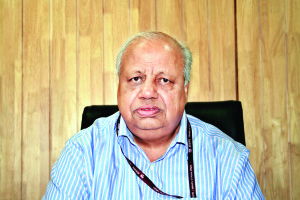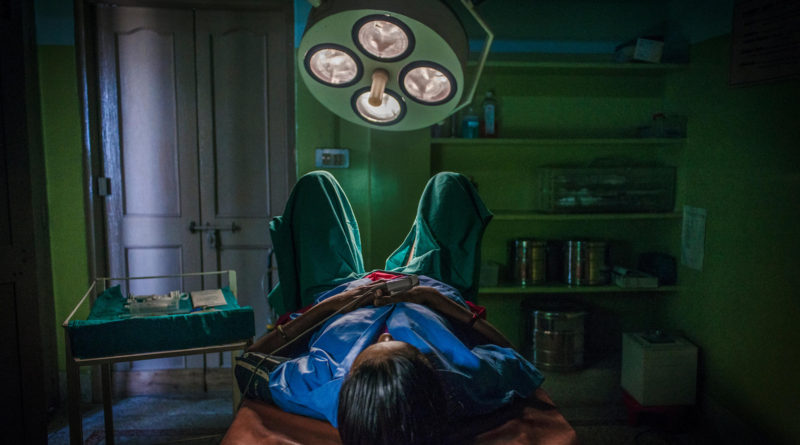Every Woman’s Right
There is a crying need to revisit the present legal limit of abortion up to 20 weeks of pregnancy to save a mother’s life, especially in view of the rapid advances in medical science
BY Abhigyan
After the Supreme Court’s recent order allowing a rape victim to abort her abnormal 24-week-old foetus on medical grounds, which is beyond the permissible 20 weeks limit prescribed under the Medical Termination of Pregnancy Act, 1971, the entire medical fraternity has started demanding immediate implementation of the much-awaited draft Medical Termination of Pregnancy (Amendment) Bill, 2014.
The Supreme Court’s decision comes on the ground of danger to the victim’s physical and mental health. The victim got relief under an exception in section 5 of the Medical Termination of Pregnancy Act, 1971, which allows abortion after the permissible 20 weeks in case it “is immediately necessary to save the life of the pregnant woman.” That the case reached the Supreme Court, posing complicated and uncomfortable questions of law and morality, draws attention to the sluggishness of India’s lawmaking process, and its failure to keep pace with rapid changes in science and society.
Abortion in India is legal only up to 20 weeks of pregnancy under specific conditions and situations, which are broadly defined as the continuance of the pregnancy that would involve a risk to the life of the pregnant woman or of grave injury of physical or mental health, or there is a substantial risk that if the child were born, it would suffer from such physical or mental abnormalities as to be seriously handicapped.
In many parts of India, daughters are not preferred and hence sex-selective abortion is commonly practised, resulting in an unnatural male to female population sex ratio due to millions of developing girls selectively being targeted for termination before birth.
The prevalence of illegal abortions, combined with the idea that abortion could be a mode of population control, caused the government to reconsider the law. In 1964, the Central Family Planning Board of the Government of India met and formed a committee to examine the subject of abortion from the medical, legal, social, and moral standpoints.
The Abortion Study Committee, headed by Shantilal Shah (health minister of Maharashtra) submitted its report in December 1966. This report suggested that the penal code was too restrictive and recommended that the exemptions under which abortion were permissible be increased and liberalized. Many of the report’s suggestions were included in the subsequent Medical Termination of Pregnancy (MTP) Act, 1971 and beyond.
The Indian abortion laws fall under the Medical Termination of Pregnancy (MTP) Act, which was enacted by the Parliament in the year 1971 with the intention of reducing the incidence of illegal abortion and consequent maternal mortality and morbidity. The MTP Act came into effect from 1 April 1972 and was amended in the years 1975 and 2002.
Pregnancies not exceeding 12 weeks may be terminated based on a single opinion formed in good faith. In case of pregnancies exceeding 12 weeks but less than 20 weeks, termination needs opinion of two doctors. The Medical Termination of Pregnancy (MTP) Act of India clearly states the conditions under which a pregnancy can be ended or aborted, the persons who are qualified to conduct the abortion and the place of implementation.
In the recent past, Haresh and Niketa Mehta petitioned Bombay High Court to allow them to abort their 26-week-old foetus that had been diagnosed with a heart defect. For the first time, the national medical narrative took note of the fact that with the advent of medical technology, pre-natal diagnosis of defects had come a long way — and some defects could be revealed after 20 weeks have passed. The Mehtas’ plea was turned down on expert advice. But the court’s observation that only the legislature could address the demand for change in the legal limit meant that India started the process of re-evaluating provisions of the Medical Termination of Pregnancy Act, 1971. Niketa, incidentally, had a miscarriage soon after the verdict.
Last year, a 14-year-old rape victim from Gujarat sought and received permission from the Supreme Court to abort after the 20 weeks deadline had passed. Her petition was treated as a “special case”, meaning it could not be used as a precedent to grant permission in another case.
An adult woman requires no other person’s consent except her own. The draft Medical Termination of Pregnancy (Amendment) Bill, 2014, on which the Health Ministry has sought and received comments, provides for abortion beyond 20 weeks under defined conditions. As per the draft law, a healthcare provider may, “in good faith”, decide to allow abortion between 20 and 24 weeks if, among other conditions, the pregnancy involves substantial risks to the mother or child, or if it is “alleged by the pregnant woman to have been caused by rape.”
The draft law also takes into account the reality of a massive shortage of both doctors and trained midwives, and seeks to allow Ayurveda, Unani and Siddha practitioners to carry out abortions, albeit only through medical means, and not surgical ones.

According to Dr Vinay Agarwal, former National President, Indian Medical Council, the draft legislation recognises that the anguish caused by pregnancy resulting from rape “may be presumed to constitute a grave injury to the mental health of the pregnant woman”, and that such an injury could be a ground for allowing abortion.
“In my opinion a revision of the legal limit for abortion is long overdue. Foetal abnormalities show up only by 18 weeks, so just a two-week window after that is too small for the would-be parents to take the difficult call on whether to keep their baby. Even for the medical practitioner, this window is too small to exhaust all possible options before advising the patient to take the extreme step,” Dr Vinay Agarwal added.

Dr A K Aggarwal, Professor of Excellence and former President, Delhi Medical Council, said, “The rising incidence of sex crimes, and the urgent need to empower women with sexual rights and choices both in their own interest and for the sake of reducing the fertility rate as a whole, have made it imperative that the law be changed. In any case and what is far more worrying is the fact that the lack of legal approval does not prevent abortions from being carried out beyond 20 weeks. And they are done in shady, unhygienic conditions by untrained, unqualified quacks, putting thousands of women at risk probably every day.”
Unsafe abortions are killing a woman every two hours in India. It amounts to 4000 deaths a year, according to estimates and calculations correlating data on maternal mortality ratio (MMR) and Sample Registration System (SRS) data by Ipas, India, an international NGO working on increasing access to safe abortion services.
Out of the 26 million births that occur in India every year, approximately 2-3 per cent foetuses have a severe congenital or chromosomal abnormality. Most countries, including the US, UK and China, which have legalised abortion, allow termination after 20 weeks in case of severe foetal abnormalities, or to protect the mental or physical health of a pregnant woman.

Dr Nirupma Singh, Senior Gynecologist who runs Mother & Child Clinic at Vaishali, Ghaziabad, said, “Abortion is the only way to save a mother’s life. Increasingly, grounds denying abortion are being recognized to have no medical validity in view of the rapid advances in obstetrics, foetal medicine, and holistic pre-natal and post-natal health care for mothers and their babies. The rational response to life-threatening pregnancy these days is to improve positive health care delivery especially the availability of competent and compassionate psychological and physical prenatal and post-natal care for distressed mothers.”
Pre-natal diagnostic techniques like Medical Ultrasonography are capable of determining the sex of the foetus. According to The Pre-Natal Diagnostic Techniques (Regulation and Prevention of Misuse) Amendment Act, 2002, providers of sex determination tests are punishable by three years imprisonment and a Rs. 10,000 fine (five years imprisonment and a Rs. 50,000 fine for subsequent offence); those who seek aid are punishable with a term that may extend to three years and a fine that may extend to Rs 50,000 for the first offence and for any subsequent offence with imprisonment which may extend to five years and with fine which may increase to Rs. 100,000.
Medical professionals in India have been long demanding that certain abnormalities should be included as a valid reason for MTP even after 20 weeks, empowering the woman to take the decision. Doctors hold that MTP should be allowed till the 24th week. Pregnant women are generally asked to undergo tests around the 18th week to find abnormalities in foetus. Some reports take three weeks and doctors lose on the MTP cut-off time. A little extension will come as a boon to women.
Union health ministry is still unable to present the much-awaited draft Medical Termination of Pregnancy (MTP) (Amendment) Bill, in the Parliament. The draft bill contemplates the extension of the legal limit for abortion from the present 20 weeks to 24 weeks. The ministry claims that it has posted the draft on its website for seeking the opinion of stakeholders and medical professionals. It has received various opinions related to the amendments, many of which are in disagreement of the prepared draft. So, as per sources, it is in the process of reformulating the Bill.

